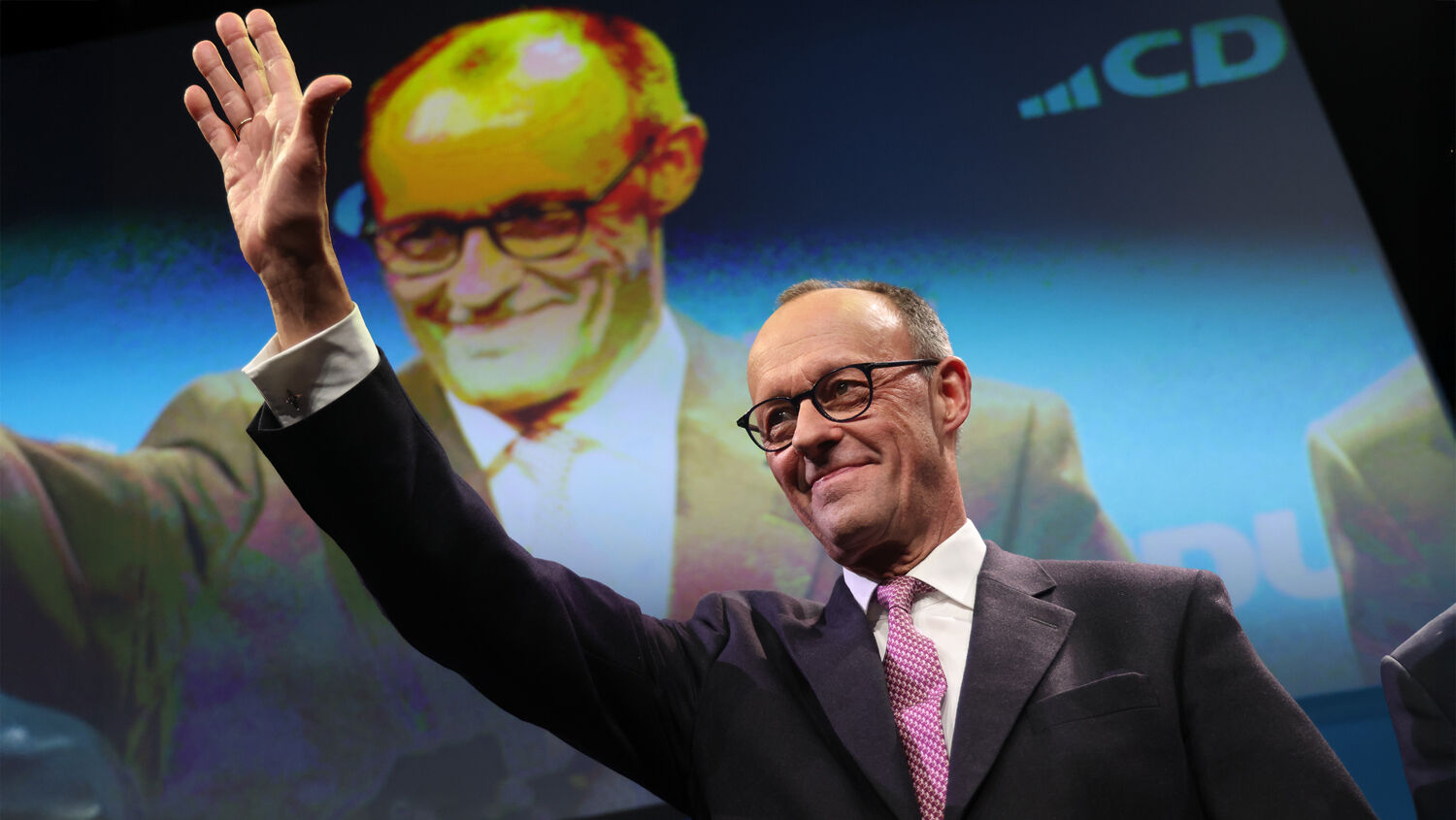
Germany Has a New Catholic Strongman
Friedrich Merz, poised to become Germany’s next chancellor, is a practicing Catholic. Given that the Roman Catholic Church is Germany’s largest religious group, this isn’t surprising. But for almost three decades, Germany has been ruled by Protestant chancellors (Gerhard Schröder and Angela Merkel) or one without religious affiliation (Olaf Scholz). Merz is not only Catholic in his private life, some of his statements suggest that his faith could have profound implications for Germany’s future.
After the long rule of Protestant chancellor Angela Merkel, the Christian Democratic Union (cdu) is now presenting again a Catholic chancellor as it has often done in the past. With that revival comes noticeable differences.
- Merkel focused on asking forgiveness for Germany’s past, opened the borders to migrants, and advocated for multiculturalism.
- Merz encourages Germans to take pride in their history, seeks to keep out illegal migrants, and wants to strengthen Germany’s historic culture.
In the early 2000s Merz suggested a Leitkultur (guiding culture) that refugees would have to adapt to. In 2023, he used the term again:
When we talk about Leitkultur, about our way of life, then, for me, this includes buying a Christmas tree before Christmas. It is the kind of Western Christian cultural identity that is passed down through generations, that our children are shaped by, and that they themselves then carry on in one way or another. … I’m slightly astonished that it is apparently a problem for many when we say something like that.
Referencing Merz’s comments, Deutsche Welle wrote on Dec. 21, 2023:
The concept of Leitkultur has been part of German politics since the late 1990s but is still not particularly well defined.
It can often be ambiguous, for instance, whether the term lists examples of established German culture that migrants ought to accept and respect, or actually adopt themselves.
More liberal politicians often take offense to the concept, preferring to suggest immigrants integrate as part of Germany’s multicultural society. Some critics of the concept saw a direct parallel to the concept of “Germanization” propagated by the Nazis.
Merz was careful in his comments published on Thursday at no point to take that extra step and say everyone should have a tree themselves.
However, Merz as cdu leader has more aggressively championed the idea of Leitkultur than his predecessor Angela Merkel, and particularly the notion that there should be an onus on new arrivals to at least adapt to such customs, and in some cases, to adopt them.
Less than two weeks ago, the cdu released a blueprint for its vision of Germany’s future. Among the policy points the paper highlighted was one titled “The Courage to Embrace Leitkultur: Only those who acknowledge our dominant culture can integrate and become German citizens.”
Although Merz is rarely stating it outright, his religious beliefs shape his policies. In a contribution for Welt am Sonntag in 2019, he noted that there is a new “cultural struggle” for the future of the free liberal order and that the increased persecution of Christians around the world is “an attack on our freedom.”
The Bible reveals in Revelation 17 that Germany and all Europe will revive their Catholic heritage—under 10 prophesied “kings” or strong leaders. The late Herbert W. Armstrong always taught that these leaders would be Catholic. In the July 1961 Plain Truth, he wrote:
We have said—as the prophecies of your Bible say—that when this symbolic prophetic “beast” fully emerges from its “bottomless pit” it will require the affiliation with the Roman Catholic Church as the “supreme authority,” which alone shall be able to weld together in political and military union these 10 nations.
This biblical prophecy is found in Revelation 17. “I will tell thee the mystery of the woman, and of the beast that carrieth her, which hath the seven heads and ten horns. … And the ten horns which thou sawest are ten kings, which have received no kingdom as yet; but receive power as kings one hour with the beast. These have one mind, and shall give their power and strength unto the beast” ( verses 7 and 12-13).
A woman in Bible prophecy is symbolic of a church, and a beast is symbolic of an empire and its ruler. Our free booklet Who or What Is the Prophetic Beast? explains this prophecy in detail.
The Bible reveals that under the guidance of the Roman Catholic Church, 10 authoritarian leaders will unite under a supreme leader.
Friedrich Merz himself is a practicing Catholic. He was born in the Catholic Sauerland region where he took part in the Catholic youth community as an altar boy. He became a member of a Catholic student fraternity and the Catholic social organization Kolpingwerk.
Merz has also been endorsed by the man Trumpet editor in chief Gerald Flurry believes may become Europe’s supreme leader: former Defense Minister Karl-Theodor zu Guttenberg. He told the German Press Agency on Jan. 17, 2020: “For me, there is only one politician in the Union left, who I consider perfectly suitable for this task and who I would vote for: Friedrich Merz.”
To learn more about these prophecies, request a free copy of Who or What Is the Prophetic Beast?, by Herbert W. Armstrong.
